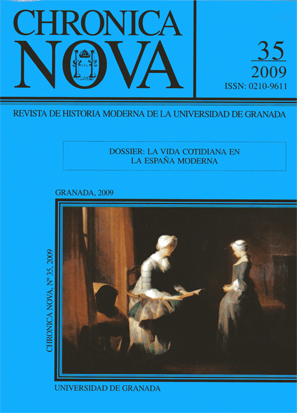La historia de la historia de la alimentación
DOI :
https://doi.org/10.30827/cn.v0i35.1632Mots-clés :
Historia, Alimentación, Historiografía, Vida cotidiana, Edad ModernaRésumé
La historia de la alimentación, contra lo que pudiera parecer, no es un invento reciente dela nueva historia. La historia de la alimentación nació con la historia. De alguna manera el temasiempre estuvo presente, pero fue en el siglo XX, en el periodo de entreguerras, gracias a la inicialconvocatoria de Lucien Febvre y de Marc Bloch en Francia, cuando nació la moderna historia de laalimentación. Superada la interrupción de la segunda guerra mundial, fue a partir de 1960 cuandosurgió la gran iniciativa, animada por Fernand Braudel y la Escuela de los Annales. En el marco dela historia total, ideal de la escuela de los Annales, el nuevo proyecto de historia de la alimentaciónse formuló con criterios más rigurosos y exigentes y se planteó con mucha mayor envergadura, comouna investigación interdisciplinar, aplicando métodos cuantitativos y sistematizando el trabajo. En elmedio siglo transcurrido el enfoque ha evolucionado hacia lo social y cultural. En 1987, Jean-LouisFlandrin denunciaba la crisis en la que se hallaba entonces la historia de la alimentación y proponíauna ambiciosa ampliación de las perspectivas. Actualmente se entiende la historia de la alimentaciónen su sentido más amplio, abarcando desde lo estrictamente material hasta lo puramente cultural,en que la columna vertebral es la historia de la sociedad, reflejada a través de la alimentación, ytambién al contrario, la alimentación vista a la luz de la historia de la sociedad. Como muestra laHistoria de la alimentación publicada bajo la dirección de Jean-Louis Flandrin y Massimo Montanari,la historia de la alimentación ya ha alcanzado la amplia y plural dimensión que se requiere parahacer comprensible el hecho alimentario y su evolución a través de la historia. En este artículo, sinpretensiones de ser exhaustivo, se intenta hacer un seguimiento de la trayectoria de la historia de laalimentación a lo largo de la historia, destacando las principales aportaciones en los diversos países,prestando especial atención a la historiografía española.Téléchargements
Téléchargements
Publié-e
Comment citer
Numéro
Rubrique
Licence
Nuestra revista se atiene a las recomendaciones para la implementación del Artículo 37 Difusión en Acceso Abierto de la Ley de la Ciencia, la Tecnología y la Innovación:
- Los/as autores/as cuyas contribuciones sean aceptadas para su publicación en esta revista conservarán el derecho no exclusivo de utilizar sus contribuciones con fines académicos, de investigación y educativos, incluyendo el auto-archivo o depósito de los artículos aceptados en repositorios institucionales o temáticos de acceso abierto de cualquier tipo en un plazo máximo de seis meses.
- Preferiblemente se permitirá el uso de la versión publicada de las contribuciones científicas, que estarán accesibles en abierto tan pronto como sea posible.
-
Que en caso de que el trabajo sea aprobado para su publicación, el/la autor/a autoriza de manera ilimitada en el tiempo a la entidad editora para que incluya dicho texto en Chronica Nova y pueda reproducirlo, editarlo, distribuirlo, exhibirlo y comunicarlo en el país y en el extranjero por medios impresos, electrónicos, CD, Internet o cualquier otro medio conocido o por conocer.






 ISSN-e: 2445-1908
ISSN-e: 2445-1908










